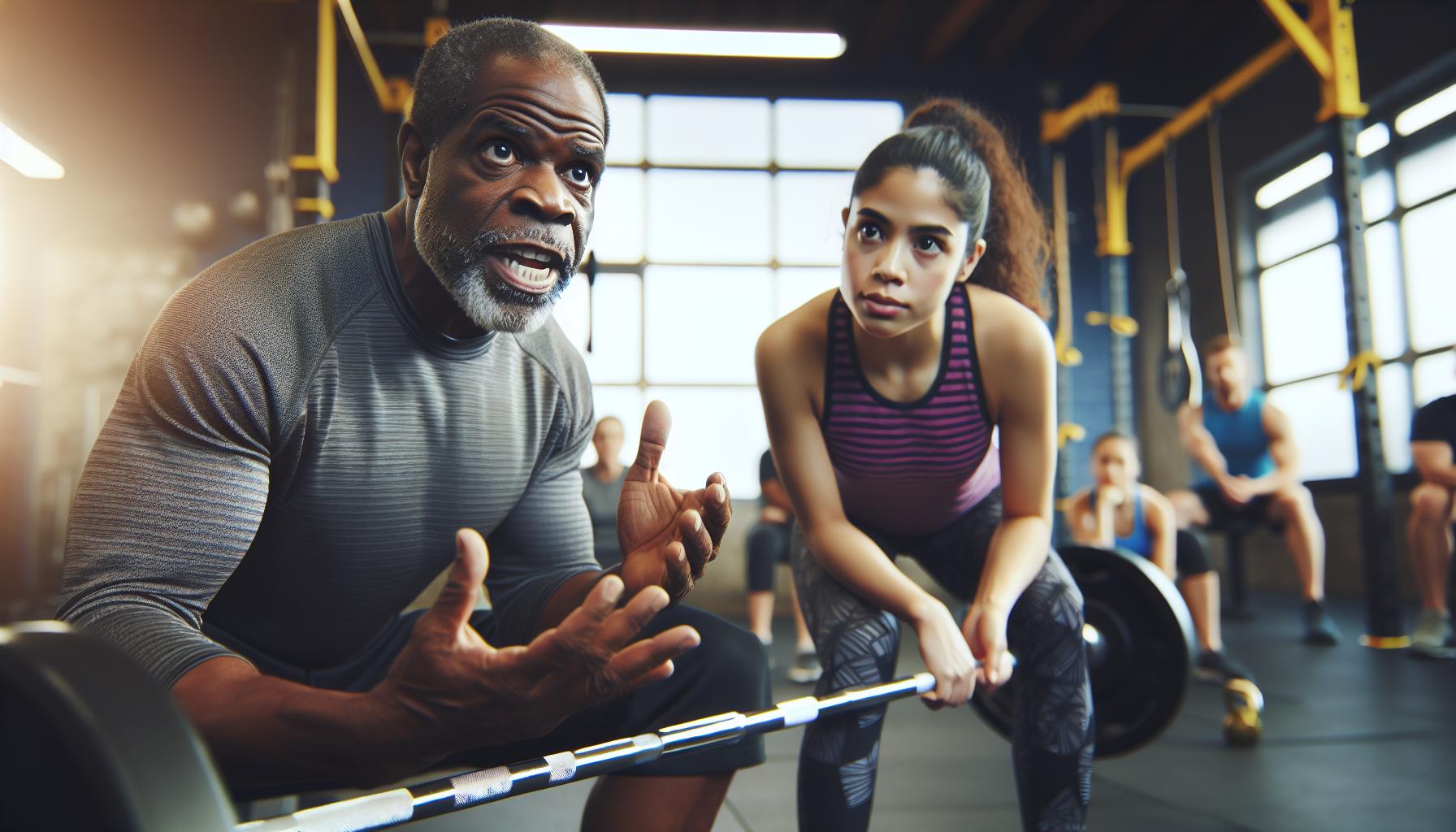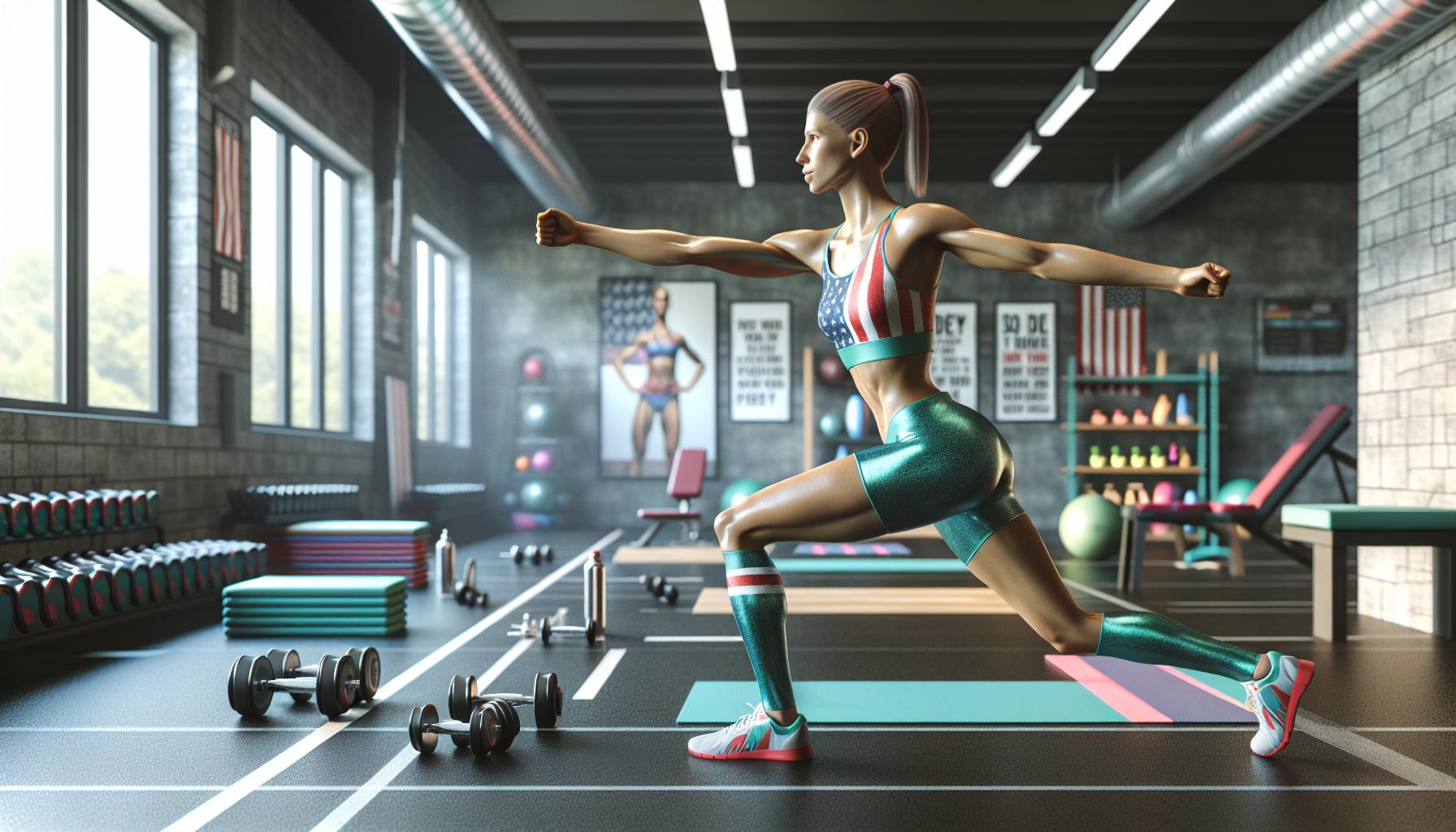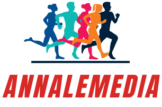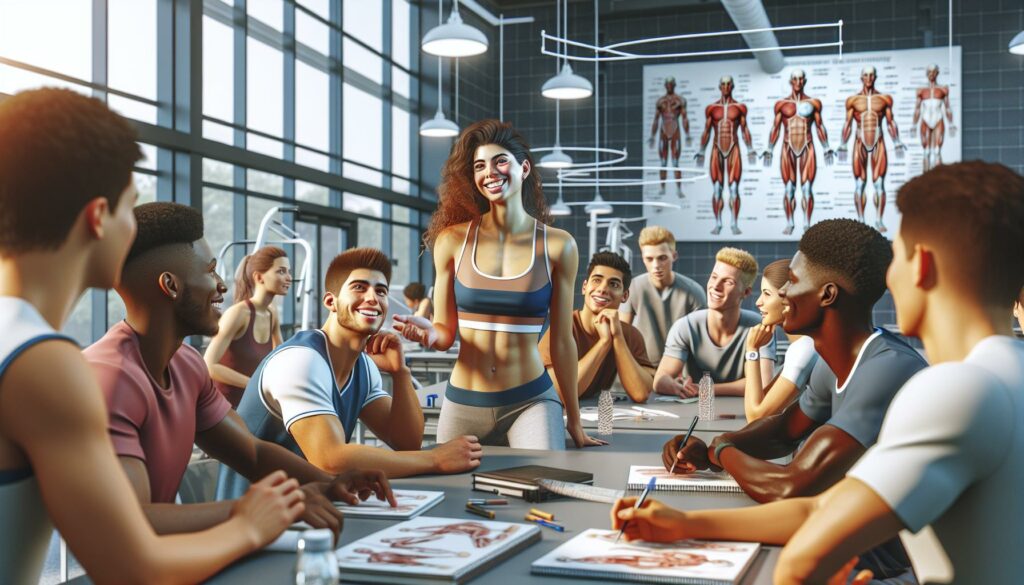Choosing a major can feel like picking a favorite child, but let’s face it—some options are just more exciting than others. Enter the exercise and sport science major, where students dive into the fascinating world of human movement, fitness, and performance. It’s not just about lifting weights and running marathons; it’s about understanding the science behind why those activities make us feel like superheroes.
Imagine studying how to optimize athletic performance while mastering the art of convincing friends to join you for a workout. This major opens doors to careers in coaching, rehabilitation, and even sports management. With a blend of rigorous science and a dash of fun, it’s the perfect path for anyone who loves sports and wants to make a real impact. So, why settle for a boring desk job when you can turn your passion for movement into a thrilling career?
Exercise And Sport Science Major
Exercise and sport science major encompasses the study of human movement, fitness, and performance. This academic discipline draws from various fields, including biology, physiology, and psychology. Students engage in theoretical and practical learning to understand how the body adapts to exercise and physical activity.
The curriculum typically includes courses in anatomy, exercise physiology, biomechanics, and nutrition. Understanding these subjects equips students with essential knowledge for analyzing human performance. Classes often incorporate hands-on experiences, allowing students to gain practical skills in fitness assessment and training methodologies.
Career opportunities in this major are diverse and rewarding. Graduates can pursue roles in athletic training, strength coaching, and sports rehabilitation. Additionally, positions in fitness program development and sports management provide avenues for professional growth.
Internships or field experiences typically complement academic studies. Real-world applications of the learned principles enhance students’ competencies. Networking with professionals in the field also fosters valuable connections, which can lead to job placements.
This major attracts individuals passionate about movement and health. Graduates often play crucial roles in improving athletic performance and promoting overall wellness. By merging scientific inquiry with an active lifestyle, the exercise and sport science major empowers students to make a meaningful impact in the sports and fitness industries.
Core Subjects And Curriculum

The curriculum for an exercise and sport science major features a blend of essential topics. Students explore various subjects that provide a robust foundation in understanding human performance.
Anatomy And Physiology
Anatomy and physiology are critical components of the program. Students study the structure of the human body and the functions of various systems. Knowledge gained in areas such as muscular and skeletal anatomy enhances the ability to analyze movement. Understanding physiological responses to exercise prepares students to design effective training programs. This subject emphasizes the connection between physical structure and performance, ensuring graduates can apply this information in real-world scenarios.
Exercise Physiology
Exercise physiology focuses on how the body responds to physical activity. This area delves into metabolic responses, cardiovascular adaptations, and muscular changes during exercise. By studying exercise physiology, students learn how to optimize training and enhance performance. Practical applications of this knowledge include designing tailored fitness assessments and developing conditioning programs for athletes. The subject equips graduates with the skills to address individual fitness needs through scientifically grounded approaches.
Sport Psychology
Sport psychology examines the mental aspects of athletic performance. This subject investigates motivation, mental toughness, and anxiety management techniques to enhance performance under pressure. Students develop an understanding of how psychological factors influence physical activity and competition. Skills learned in sport psychology enable graduates to support athletes in achieving their performance goals. By addressing mental barriers, students can significantly impact an athlete’s overall success in their sport.
Career Opportunities

Graduates with an exercise and sport science major experience a variety of career paths across multiple sectors. Their education prepares them to excel in roles that enhance athletic performance and promote overall wellness.
Coaching and Training
Coaching positions offer numerous opportunities in schools, colleges, and professional sports teams. Coaches develop training programs that improve athletes’ performance, focusing on skill development and strategy. Strength coaches emphasize physical conditioning, ensuring athletes reach their peak potential. Personal trainers often work with individuals in gyms or private facilities, creating tailored workout plans to meet specific fitness goals. Various certifications enhance their credentials, making graduates competitive in the job market.
Physical Therapy
Physical therapy represents a vital career path for graduates. Physical therapists work with patients recovering from injuries or surgeries, using exercise and rehabilitation strategies to restore mobility. They assess individual needs, providing personalized treatment plans to facilitate recovery. In some cases, graduates may also engage in sports rehabilitation, focusing on athletes returning to competitive play. Advanced education, such as a Doctor of Physical Therapy degree, is typically necessary for licensure in this field, presenting further opportunities for specialization.
Sports Management
Sports management careers encompass various functions within the industry. Graduates may take on roles in event planning, marketing, or facility management in sports organizations, ensuring successful operations and promotions. Marketing professionals focus on branding and fan engagement, critical for driving revenue. Event coordinators organize competitions and tournaments, enhancing participants’ and spectators’ experiences. A strong understanding of business principles along with a passion for sports can lead to lucrative opportunities in this dynamic sector.
Benefits Of Pursuing This Major

Pursuing an exercise and sport science major offers numerous advantages. Students gain a solid foundation in both physical health and mental well-being, which are essential components of athletic performance and everyday life.
Physical Health
Students develop a deep understanding of the human body’s mechanics. Knowledge gained in courses such as anatomy and exercise physiology equips them to design effective training programs. Practical experiences provide significant insights into fitness assessments and conditioning techniques. Graduates can influence health outcomes through personal training and rehabilitation roles. They also promote preventive health measures and encourage healthy lifestyle choices. Exploring the physiological responses to various exercise regimens enhances overall fitness, supporting better performance in athletes and recreational enthusiasts alike.
Mental Well-Being
Graduates learn about the psychological factors influencing athletic performance. Sport psychology courses teach strategies to overcome mental barriers, fostering resilience in athletes. Understanding stress management techniques enables them to support individuals facing performance anxiety. Improved mental well-being in athletes leads to enhanced focus and motivation. They can also apply these concepts in fitness programs, promoting mental health through physical activity. A holistic approach integrates both mind and body, creating a balanced perspective essential for success in sports and everyday life.
Career Options
Choosing an exercise and sport science major opens doors to a dynamic and fulfilling career. With a strong emphasis on both the scientific and practical aspects of human movement and performance, graduates are well-equipped to make a meaningful impact in various fields. The knowledge gained in anatomy, physiology, and psychology prepares them to tackle challenges in athletic training, rehabilitation, and sports management.
This major not only fosters a deep understanding of physical health but also emphasizes mental well-being, essential for success in sports and everyday life. By combining passion with education, students can transform their love for movement into a rewarding profession that contributes to the health and performance of individuals and athletes alike.

